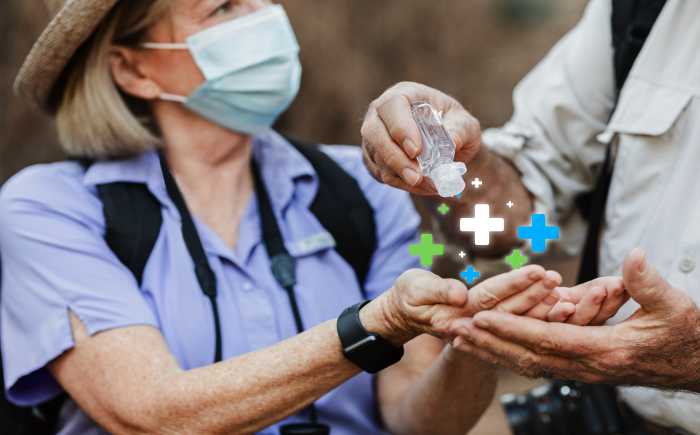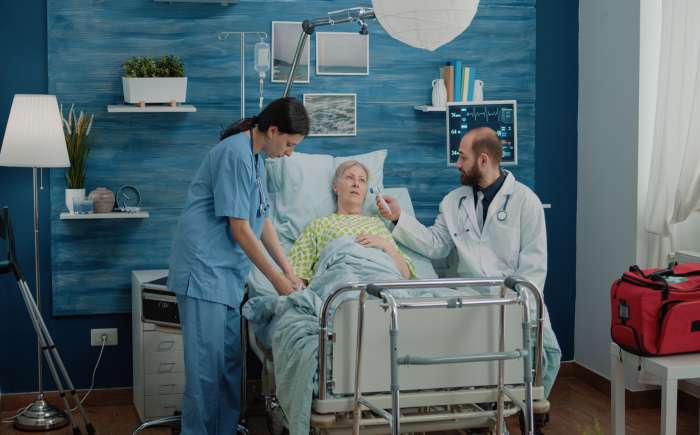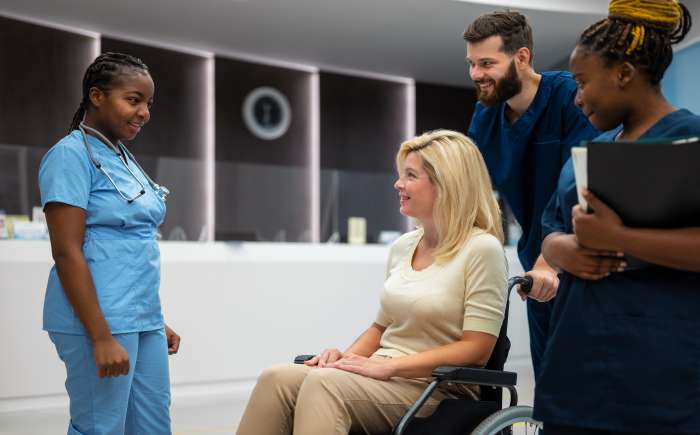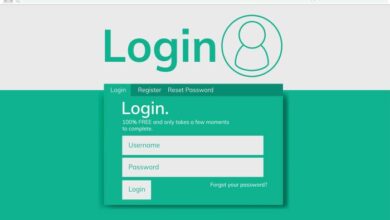Complete Guide to Community Health Nursing Definition

Learn the community health nursing definition and explore its role in improving public health. Get expert insights and tips on community care today!
Community Health Nursing Definition: An Overview
Community health nursing is a rewarding and impactful field. It’s not just about caring for individuals; it’s about improving the health of entire communities. Whether it’s preventing diseases, teaching health, or helping people manage long-term conditions, community health nurses make a big difference. I’ve had the chance to see this firsthand through my work, running health education workshops for communities in need. In this post, I’ll explain what community health nursing is, why it matters, and how my experiences have shaped my understanding of this field.
What is Community Health Nursing Definition?
Community health nursing is a part of nursing that focuses on the health and well-being of groups and populations. Unlike regular nursing, which focuses on treating individual patients, community health nurses work with communities. They focus on families, groups, and the public. Their goal is to prevent health problems and reduce the differences in health across different communities. I remember working in a community with a lot of air pollution. We started a campaign to raise awareness about the dangers of air pollution. This is a perfect example of how community health nurses can prevent health problems before they start.
Community health nurses figure out what health problems a community has and work on solutions. I’ve worked in schools and rural areas, where small actions like offering vaccinations or giving advice about healthy habits can prevent sickness. I’ve also seen how mental health programs can help entire communities. By taking care of health issues early, we can lower future healthcare costs and improve everyone’s health.
The goal of community health nursing is to help people stay healthy. It’s about focusing on prevention—like promoting healthy eating, exercise, and stress management—before diseases start. I’ve seen how these programs, especially in schools, not only keep children healthy but teach them healthy habits for life.
The Role of Community Health Nurses
Community health nurses do a mix of things: clinical care, health education, and advocacy. They work in different places, from schools to clinics, and even in people’s homes. In my work, I’ve seen amazing nurses conduct health assessments, run programs, and team up with local organizations to make public health initiatives happen. Every day is different, and I love the variety this job offers.
One important job for community health nurses is to figure out what health problems a community faces. I did this in a rural area where many families couldn’t get basic healthcare. We spoke to people, did surveys, and found that many didn’t have enough prenatal care. We then created health programs to solve this problem. I’ve seen how this approach can lead to real change. Nurses also teach people about health. For example, I organized a workshop on hand hygiene during a flu outbreak. It helped lower infection rates and showed how important teaching is.
Another important part of the job is pushing for public health policies that make healthcare more accessible. I’ve worked with health officials to change policies, and it’s incredibly rewarding to see how your efforts can improve health for more people. Nurses are often the voice for those who don’t have access to care, and it’s empowering to be part of that.
Principles of Community Health Nursing Definition

Community health nursing is based on helping people stay healthy, preventing diseases, and providing care for everyone. These principles guide nurses in their work and shape their approach to improving health outcomes. I’ve learned these through both training and real-world experience. I’ve seen how focusing on prevention—like vaccination clinics and health screenings—can reduce the spread of disease in communities.
Prevention is a core principle of community health nursing. I recall organizing a vaccination clinic in a low-income area. Many children hadn’t been vaccinated, so we educated families about the importance of vaccines. We made it easy for them to get their shots. The result? Many children received vaccines and we prevented several serious diseases. It was a powerful reminder that a lot can be done before a health problem becomes big.
Cultural competence is also essential. I’ve worked with people from many different backgrounds. Understanding their cultures and needs is key to giving the best care. For example, when we organized a nutrition workshop for an immigrant community, we made sure to consider their food preferences and restrictions. By adapting to their culture, we gained their trust and made sure our message about healthy eating worked.
The Importance of Community Health Nursing in Public Health

Community health nursing plays a big role in public health. Through this practice, many diseases are prevented, health gaps are narrowed, and wellness is promoted. I’ve worked with public health experts on major challenges like preventing the spread of diseases and managing chronic conditions in underserved areas. What I’ve learned is that the work we do at the community level helps improve public health.
For example, I worked on a program to help people quit smoking in a community with high tobacco use. It was great to see how education, support groups, and providing nicotine replacements helped people cut down on smoking and improve their health. It showed me how important community health nurses are in preventing diseases and improving health.
Community health nurses work in places where they can make a direct impact. They help with disease prevention, chronic condition management, and helping people get the care they need. These efforts improve individual health and contribute to the overall health of the community. By spotting health trends, addressing risks, and implementing proactive programs, community health nurses help build healthier societies.
Key Skills for Community Health Nursing Definition

Community health nursing requires a variety of skills, including clinical knowledge, communication, and cultural understanding. From my own experience, I’ve learned that being flexible and creative is also essential. Every community is unique, so you have to adjust your approach to fit their needs. I remember organizing a health fair where we had to quickly change our presentations to work with the community’s language and low literacy. It was a challenge, but it showed me how important good communication and creative thinking are.
The ability to communicate is one of the most important skills for community health nurses. I often explain health topics in a simple way, especially when I’m working with people who have low health literacy. It’s crucial to make sure that information is clear and accessible, whether through one-on-one chats, group meetings, or educational materials.
Critical thinking is also a key skill. Community health nurses need to assess the needs of the community, decide what issues to address, and design solutions based on facts. In one role, I had to assess the risk of a flu outbreak in a community and quickly create a vaccination plan. Being able to make decisions in a short time, while working with other healthcare providers, is something I’ve developed and continue to use.
The Impact of Community Health Nursing on Health Equity

Health equity means that everyone, no matter their background, should have access to the care they need to live a healthy life. As a community health nurse, I’ve seen how focusing on vulnerable groups can help reduce health inequalities. I’ve worked in areas where people couldn’t get care because of poverty or distance from healthcare facilities. I’ve seen how community health nurses can make a big difference in these situations.
One experience that stands out is when we offered free health screenings in a rural area. People were hesitant at first, but once they saw the care they received at no cost, the turnout was huge. We caught early signs of health issues like high blood pressure and diabetes—conditions that are often missed in underserved communities. By giving people access to these screenings, we helped them get treatment earlier and live healthier lives.
Nurses are often the ones who push for policies that improve healthcare access for everyone. I’ve worked with lawmakers to try to close the gap in healthcare, and it’s been incredibly fulfilling to know that our efforts help those who need it most.
Community Health Nursing Definition and Disease Prevention

Disease prevention is at the heart of community health nursing. Whether it’s through vaccinations, health checks, or educational campaigns, the goal is to stop illnesses before they start. I’ve worked in many places focused on prevention, and the results are always rewarding. For example, I helped run a campaign to teach families about handwashing to stop the spread of germs. Teaching people to wash their hands properly led to fewer cases of flu in the community.
Disease prevention saves lives and reduces healthcare costs. I’ve seen firsthand how preventing the spread of diseases like measles, tuberculosis, or flu helps the entire community. As community health nurses, we have a chance to create programs that reduce illness, save money, and ultimately save lives.
Nurses also work to prevent long-term health issues like obesity and diabetes. I’ve seen how education and support can help people change their habits and improve their health. It’s inspiring to see someone adopt healthier choices and transform their life.
The Challenges Faced by Community Health Nursing Definition
While rewarding, community health nursing can also be tough. I’ve worked in areas with few resources, which meant I had to be creative to make sure people got the care they needed. I remember one time when we had to organize a health screening with limited supplies. By teaming up with local organizations and getting donations, we were able to screen hundreds of people who wouldn’t have had access otherwise.
Cultural barriers can also be a challenge. I’ve worked in communities where language and cultural differences made communication difficult. But by being patient, using pictures, and working with interpreters, we built trust and made sure we got our message across. These experiences taught me the value of being flexible and understanding the needs of the people we’re serving.
Working in underserved areas can be emotionally tough, especially when you see people struggling with limited resources. But these moments have also shown me how important our work is in helping those in need.
Collaboration in Community Health Nursing Definition
Working together is essential in community health nursing. I’ve worked with many healthcare professionals, from doctors to social workers, to help address the complex needs of a community. For example, I once worked with public health experts to launch a mental health awareness campaign. We all brought different knowledge to the table, making our program more complete and helpful for the community.
Collaboration is also important in advocacy. I’ve worked with other community leaders and healthcare providers to push for policies that benefit the public. By working together, we can make a bigger impact and improve the health of the community.
The Future of Community Health Nursing Definition
The future of community health nursing is promising. As the world faces new challenges, like aging populations, pandemics, and rising chronic health issues, community health nurses will continue to play a key role in solving these problems. I think there will be even more focus on prevention and education, and I’ve already seen how this is changing healthcare.
I’ve seen the rise of telehealth and mobile clinics, which allow us to reach people in remote areas. As these technologies improve, community health nurses will have new tools to provide better care.
The demand for community health nurses will only increase as healthcare puts more focus on prevention. I’m excited to continue being part of this field and making a difference in communities worldwide.
Conclusion for community health nursing definition
Community health nursing is a dynamic and important field that aims to improve the health of entire communities. It’s not just about treating individuals; it’s about promoting health, preventing diseases, and working together with others. Through my experiences, I’ve learned that community health nursing brings both challenges and rewards, but it’s a field where nurses can make a big difference. As healthcare evolves, the role of community health nurses will continue to grow, and I’m excited to be part of it.
FAQs:
- What is the community health nursing definition?
Community health nursing is a specialized field that focuses on promoting and protecting the health of populations by providing care, education, and support in community settings. - Why is the community health nursing definition important?
Understanding the community health nursing definition is vital as it highlights the role of nurses in enhancing public health, preventing diseases, and addressing health disparities in communities. - How does the community health nursing definition apply to public health?
The community health nursing definition involves nurses working with communities to assess needs, provide health education, and deliver preventive care, thus improving overall public health. - What are the essential elements of nursing in community health?
The key components of community health nursing include health education, disease prevention, advocacy, and collaboration with community organizations to improve health outcomes. - What impact does community health nursing have on individuals?
Community health nursing helps individuals by providing tailored care, promoting health awareness, preventing diseases, and ensuring access to essential health services within communities.



